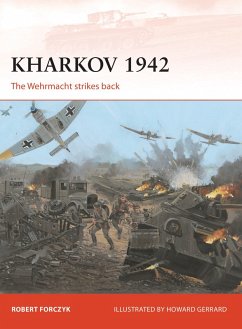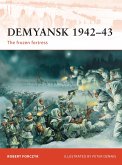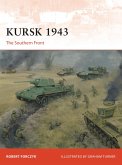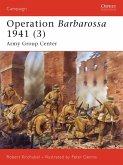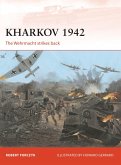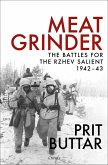A highly illustrated account of the 1942 battle of Kharkov, one of the Red Army's largest defeats in World War II.
After failing to finish off the German Army in the 1941/42 Winter Counteroffensive Stalin directed the Red Army to conduct a powerful blow in one sector of the Eastern Front in order to disrupt German plans. The sector chosen was Kharkov. Under Marshal Semyon Timoshenko, the Stavka's remaining reserves were assembled and prepared to conduct a breakthrough attack intended to encircle the German Sixth Army near Kharkov.
However, Stalin was unaware that the Germans were planning their own riposte at Kharkov, known as Operation Fredericus. When Timoshenko began his offensive in May 1942, he did not realize the limitations of his own forces or the agility of the Germans to recover from setbacks, all of which contributed to one of the Red Army greatest defeats of World War II.
This volume will pay particular attention to intelligence and logistics issues, as well as how this campaign served as a prelude to the battle of Stalingrad. It will also focus on the nascent development of the Red Army's tank corps and 'deep battle' tactics, as well as the revival of the German Panzertruppen after Barbarossa.
After failing to finish off the German Army in the 1941/42 Winter Counteroffensive Stalin directed the Red Army to conduct a powerful blow in one sector of the Eastern Front in order to disrupt German plans. The sector chosen was Kharkov. Under Marshal Semyon Timoshenko, the Stavka's remaining reserves were assembled and prepared to conduct a breakthrough attack intended to encircle the German Sixth Army near Kharkov.
However, Stalin was unaware that the Germans were planning their own riposte at Kharkov, known as Operation Fredericus. When Timoshenko began his offensive in May 1942, he did not realize the limitations of his own forces or the agility of the Germans to recover from setbacks, all of which contributed to one of the Red Army greatest defeats of World War II.
This volume will pay particular attention to intelligence and logistics issues, as well as how this campaign served as a prelude to the battle of Stalingrad. It will also focus on the nascent development of the Red Army's tank corps and 'deep battle' tactics, as well as the revival of the German Panzertruppen after Barbarossa.

